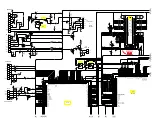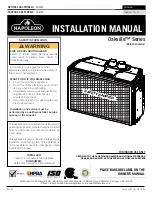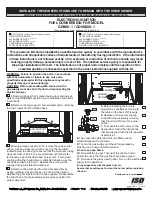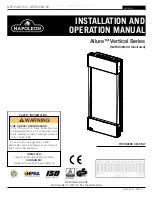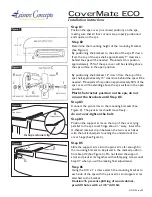
9
10
11
12
U
Ussiinngg N
Noonn--IIkkeelliittee oorr IIkkeelliittee N
Noonn--D
DSS SSuubbssttrroobbeess
((SSuubbssttrroobbee 5500,, 110000AA,, 220000,, 440000)) w
wiitthh tthhiiss H
Hoouussiinngg..
The Conversion Circuitry is automatically disabled when used
with a Non-Ikelite or Non-DS Substrobe. These Substrobes can be
used in their manual mode utilizing any power settings provided
on the Substrobe.
U
Ussiinngg EExxtteerrnnaall SSttrroobbeess
For the best photographic results underwater, we recommend
using Ikelite External Strobes. This housing has Conversion
Circuitry built into the housing back, eliminating the need for
an EV Controller. The Conversion Circuitry provides real Canon
TTL flash when used with an Ikelite DS Digital substrobe(s) and
the #4103.51 single or #4103.52 dual sync cord, connected
directly to the housing.
See ppaaggee 1166
for DS Substrobe compatibility with the Conversion
Circuitry.
U
Ussiinngg FFllaasshh
Due to the large housing port diameter, the internal camera
flash ccaannnnoott be used to illuminate subjects underwater. An
internal housing flash deflector (supplied) can be installed to
the front inside port area of the housing above the port
opening. The deflector will deflect the camera flash when using
an EV Manual Controller. The deflector will redirect the
camera’s flash to the EV Controller which controls the external
strobe output. To attach inside the housing, remove velcro
backing, align and attach the deflector inside the housing as
shown below.
N
NO
OTTEE:: The deflector is nnoott needed when an Ikelite DS digital
strobe is connected (hard-wired) directly to the housing
(recommended).
Lens
Port
Internal
Housing
Flash
Deflector
CChheecckkiinngg CCoonnttrroollss
Once the housing has been closed, make sure the housing
controls line up with the corresponding camera controls. If the
housing controls are misaligned slightly, make sure the camera
hold down bolt has been tightened down firmly so the camera
is flat against the tray.
TTuurrnn CCaam
meerraa O
Onn
Turn the camera on and operate each of the housing controls to
get a feel for using the camera in the housing. Take a few
pictures above water with the camera in the housing.
ZZoooom
m CCoonnttrrooll
(NOTE:) After you have used the
housing's zoom control, it must be
returned to the center position to
disengage. If the housing zoom
control is pushing the zoom lever
in either direction, you may not
be able to take a picture or access
any other function because the
camera is receiving a signal from
the engaged zoom control.
Engaged
Center Position
Disengaged
+
-
-
+
H
Hoouussiinngg LLeennss PPoorrtt aanndd AAcccceessssoorryy LLeennsseess
Treat the Plexiglas in the lens port as a camera lens. After use,
rinse and gently dry the lens port to avoid water spotting. To
clean, use a mild soap solution or lens cleaner.
Do not use alcohol or window cleaner on the Lens Port.
N
Noo aacccceessssoorryy oorr w
wiiddee--aannggllee lleennsseess ccaann bbee uusseedd w
wiitthh tthhiiss
hhoouussiinngg..
CClloossiinngg tthhee H
Hoouussiinngg
1. Place housing face down in your
lap or on flat surface.
2. Check to see that there is an
o-ring on the housing back and
that it is clean and in its proper
location.
3. Guide the back into the housing
front. The o-ring should touch the
housing all the way around. There
should be an even gap all the way
around between the housing and
the housing back.
4. Lift the lid snaps so they are
extended and place each lid
snap into the corresponding hook
on the housing back.
5. To close the housing, push
down on the lid snaps until
they snap into place . Lid
snaps on opposite sides of the
housing should be closed at the
same time. Be sure they are down
far enough to engage the lock.
D
Doouubbllee cchheecckk - Once the housing is closed, check the o-ring seal.
Check the gap between the housing back and the housing. It
should be even all the way around the housing.
Look through the clear plastic back at the o-ring. You should see
a darkened area where the o-ring is compressed against the
housing back. If you do not see an even black compression seal
all the way around the back, open the lid snaps, reseat the
housing back and close the lid snaps. Visually check the seal again.
o-ring
housing back
housing back
o-ring
even gap
all 4 sides







